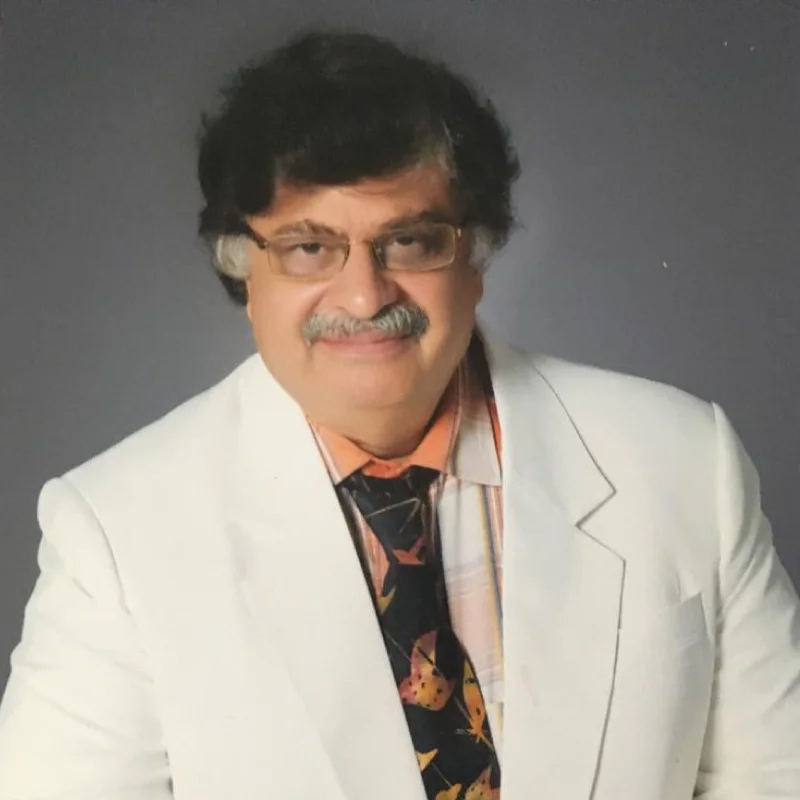
Dr. Nimish Shelat
GYNAECOLOGIST & MICROSURGEON
The first IVF baby in Ahmadabad was reported at the Ahmadabad OG Society in 1997, whereas the First IVF baby in Gujarat was born in Surat in December 1995 by a team led by Dr Nimish R Shelat and Dr Ranjanee N Shelat, as reported by the Times of India, on record at the Surat OBGYN Society for advanced development in the state of Gujarat, which had faced the panicky epidemic just a year ago. This centre remains the epitome of scientific challenges and breakthroughs that were achieved despite all odds and did not escape due recognition. The American Biographical Research Institute Research Association (ABIRA) Conferred its most prestigious World Lifetime Achievement Award in 2000 through the Govt of Gujarat, Ministry of Health, from the hands of Honourable Health Minister Shri Ashok Bhatt.
EARLY STAGES & EDUCATION

Dr. Nimish Shelat, IMA Surat President of the Millennium Year, is the grandson of freedom fighter Shri Kalidas K. Shelat, founding editor of the pre-independent Surat Gujarati daily ‘PRATAP’, and the son of renowned gynaecologist Dr. Ramesh Shelat. With a brilliant academic record at school and university, he secured simultaneous admission to all state medical colleges as well as to the Indian Institute of Technology. He ranked first with distinction in South Gujarat University’s Pre-University Science Programme in 1975, with over 91% in the first English-medium batch, as a National Scholar and was awarded a National Merit Certificate and a National Scholarship by the Government of India’s Ministry of Education and Social Welfare in 1976. As an undergraduate student, he won prizes in all extra-curricular activities, including photography, artistry, dramatics, and journalism, while enjoying immense popularity among his fellow students, being named “Mr. B.J. Medical College” in 1978. Dr. Nimish Shelat graduated with the M.B.B.S. in 1981 and was selected for the qualifications of DGO and FCPS of the College of Physicians and Surgeons of Bombay and for the M.D. degree of the K.M. School of P.G. Medicine and Research at Ahmedabad in 1985.
Then, with the awarding of an “RCOG Academic Sponsorship” from the President Sir Rustam Feroz of the Royal College of Obstetricians & Gynaecologists, UK, exempted by the General Medical Council of the UK from PLAB tests, Dr. Nimish Shelat worked as a Lecturer at the University of Wales School of Medicine at Withybush Hospital in Wales, with selection also for a Clinical Research Fellowship in andrological, gynaecological, and microvascular microsurgery by the Catholic University of Leuven, Belgium, enabling him to qualify for the Super specialty Board Certified degree of DFBMS as Lecturer of Leuven Medical School.
DEVELOPMENT & START OF MEDICAL CAREER
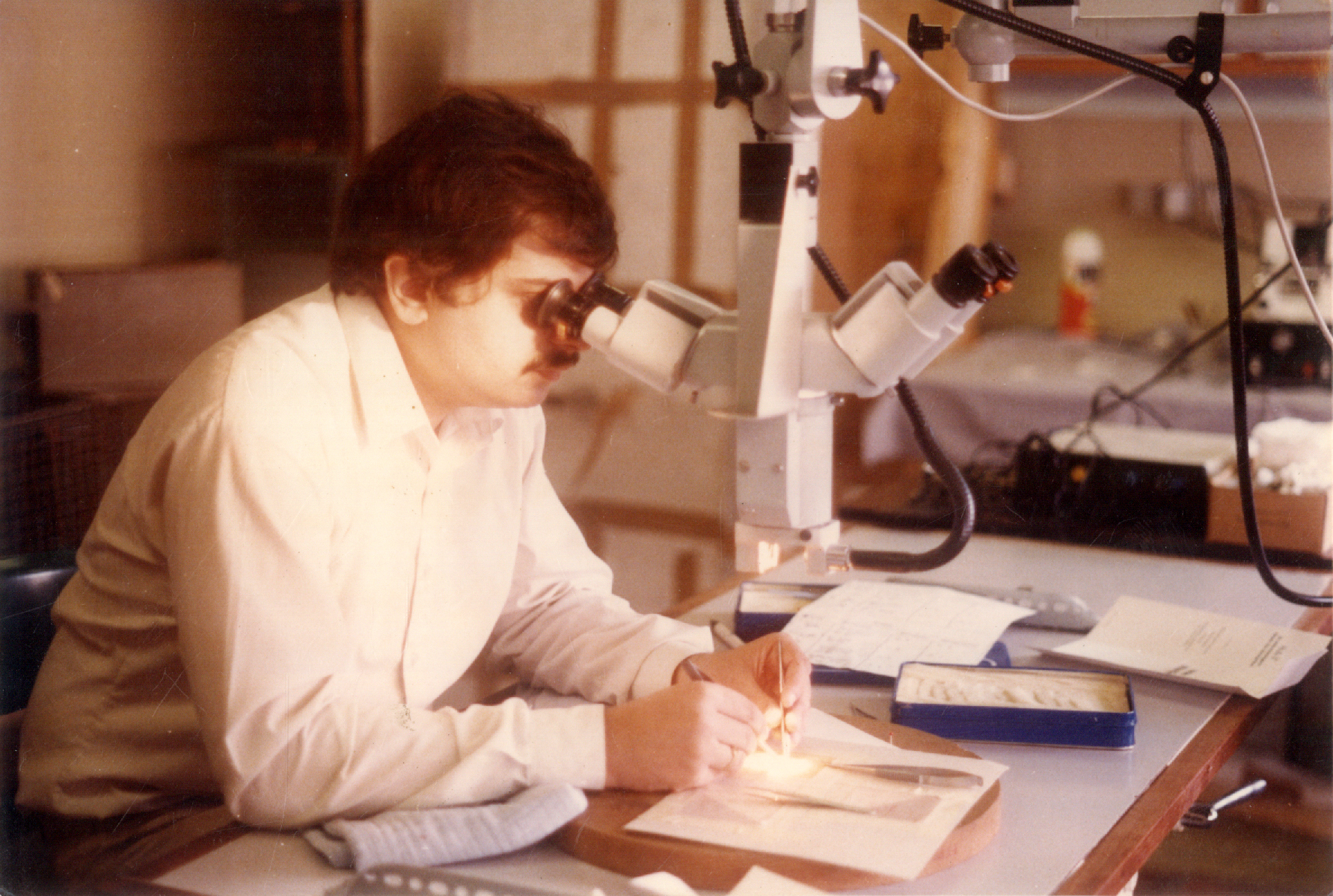
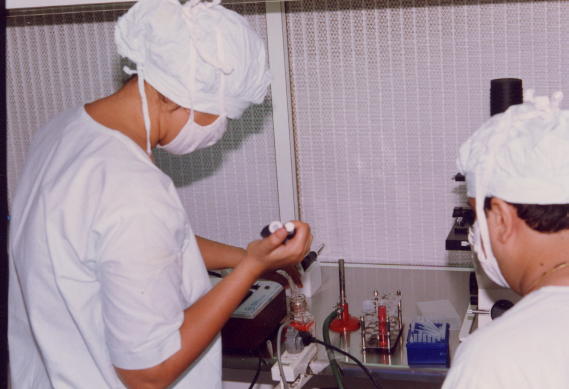
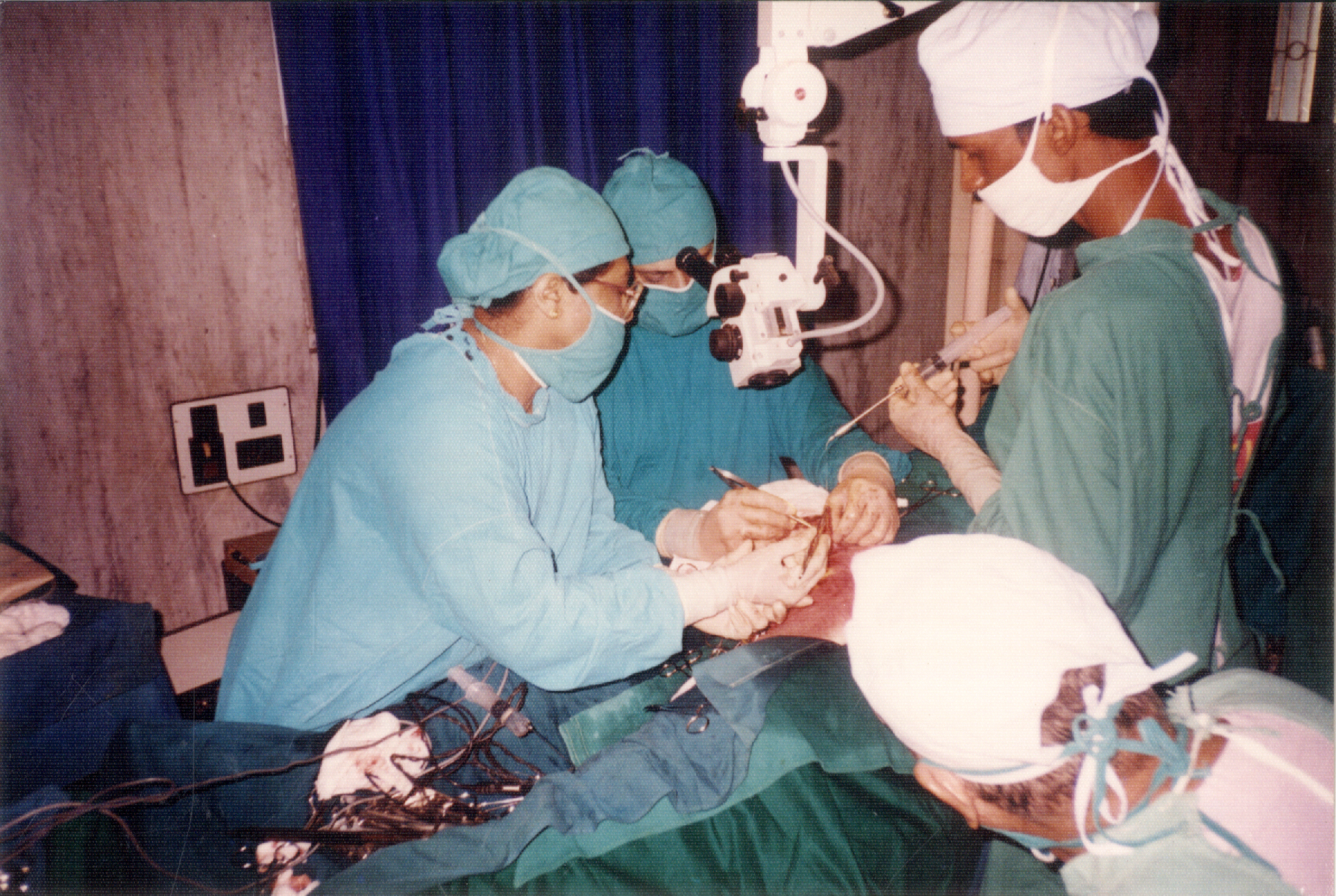
In 1988, Dr. Nimish Shelat became a diplomat and fellow of the Microsurgery Department at the internationally famous European Centre for Microsurgery. The following year, he accepted the post of Lecturer at St. George’s Hospital Medical School, in association with the University of London. Incidentally, Sir Alexander Fleming at St. George’s discovered penicillin, and Dr. Nimish Shelat trained foreign medical graduates. He is now the honorary director of the Centre for Reproductive Microsurgery and Assisted Conception at the Newbirth IVF Shreenandan Hospital (IVF Centre Surat) in Surat, in South Gujarat, providing not only medical care but also training for many of India’s postgraduate students. He is also an honorary consultant gynaecologist, andrologist, and microsurgeon at the Surat General and Mahavir General Hospitals.
“Dr. Nimish Shelat’s interest in medicine branches out to include family welfare programmes and improving India’s living standards. The scope of his work ranges from providing children to the infertile while preventing conception in large families in order to attain population control (a high priority in India). With his technique in the Microsurgical Reversal of Sterilisation, he holds an 85% success rate in reversals of sterilisation should a child be lost and another wanted, and apart from his infertility microsurgery, other assisted reproductive techniques, such as Intra-Uterine Insemination and Sperm/Gamete Intra-Falloppian Transfer, are performed. Still, by far, his most striking achievement has been working for a scientific breakthrough on in vitro fertilisation in human cases and setting up the first IVF Unit in India’s Gujarat State since 1993. While the city faced an outbreak of plague in 1994, causing worldwide panic, Dr. Nimish Shelat’s IVF Laboratory had to be closed for quarantine purposes. However, undeterred by the world’s most dreadful diseases, this was the same laboratory that gave Gujarat its first test-tube baby in December of 1995 and a micromanipulation baby in 1997 (by intra-cytoplasmic sperm injection). The X World Congress of IVF and Human Reproductive Genetics in Sydney, Australia, in May 1999, recognised and placed this Landmark on the scientific record. Amazingly, it was twenty years earlier that Dr. Nimish Shelat received a First Prize Award for best cover design to commemorate the world’s first test tube baby from the B.J. Medical College annual magazine in 1978.
WORK OF DR. NIMISH SHELAT
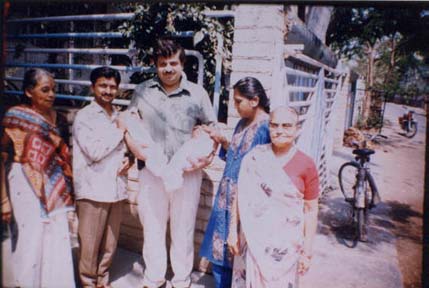
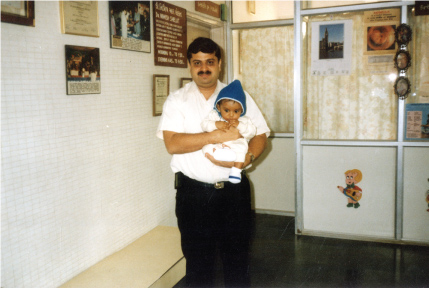
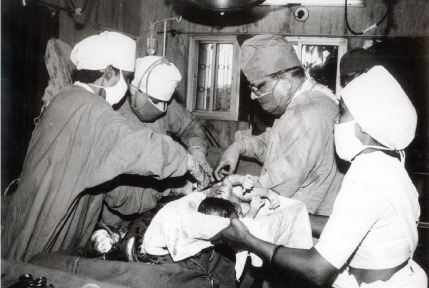
Throughout his illustrious career, Dr. Nimish Shelat has shared his work with colleagues around the world, presenting a paper on “Emergency, Referred, and Late Admissions for Delivery” at the National Seminar on Perinatology (organised by the Federation of Obstetrics and Gynaecological Societies of India in 1983) and at the IV World Congress on Human Reproduction in 1984. His research contributions on rabbit fallopian tubes with histological comparison of micro-surgical vs. fibrin-clue anastomosis have been accepted by the internationally acclaimed American Fertility Society, and his first-time demonstration of the Pfannenstiel Incision, a new approach to rabbit fallopian tubes, has won international commendation from the European Board of Microsurgery. On numerous occasions, Dr. Nimish Shelat has been invited to lecture at a Microsurgery Workshop organised jointly by the OB-GYN Departments of the K.N. School of P.G. Medicine and Research and the B.J. Medical College in Ahmedabad, with further hands-on training provided for the academic staff of Gujarat University. He was the recipient of the Surat OB-GYN Society Gold Medal in 1991 and twice Best Paper awards of the International College of Surgeons in 1992-1993 for the Indian section.
TITLES CONFERRED
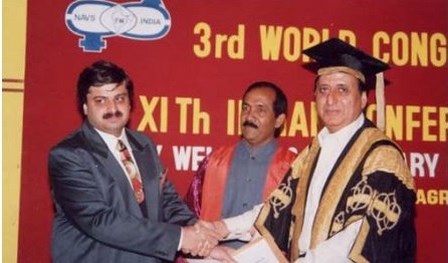
Dr. Shelat has served as president of the Indian Medical Association and Chairman of the Reproductive Endocrinology Committee of the Federation of Obstetrics and Gynaecological Societies of India. Past President, Surat Ob-Gyn Society Also, on the local level, he holds the office of president of the National Association for Voluntary Sterilisation and Family Welfare of India, Surat Branch, and founder of the South Gujarat Academy of Obstetrics and Gynaecology. Founder Fellow of the Indian Academy of Juvenile and Adolescent Gynaecology, he chaired the highly successful 7th National Congress recently held in Surat in January 2000.
NATIONAL AWARDS CREDITED
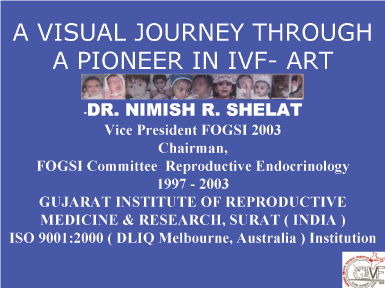
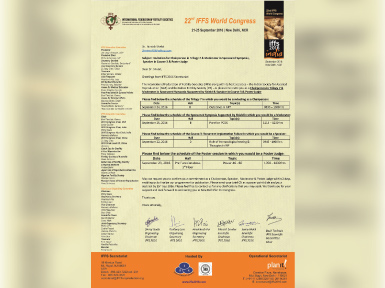
Acclaimed by the All India Institute of Medical Sciences, New Delhi, the Centre for Reproductive Microsurgery and Assisted Conception is now an established Gujarat Institute of Research in Reproduction, one of the nine centres in India accredited for higher training in infertility management by FOGSI (Federation of Obstetrics and Gynaecological Societies of India), on the registry of the Indian Society for Assisted Reproduction, and on the Asia Oceania Directory of Classified A.R.T. Centres published by the Asia Oceania Federation of Obstetrics and Gynaecology. Recently, in January 1998, the institute had, to its credit, the first frozen embryo IVF baby after cryopreservation in Gujarat. Dr. Shelat has been the recipient of over 21 national and international awards. He was nominated in 1992 as one of ten Outstanding Young Indians for Medical Innovation by the Indian Junior Chamber and has received numerous awards from FOGSI since 1990, including the R.D. Pandit Research Prize, the Kumud Tamaskar Research Prize, the Indumati Jhaveri Prize, the Dr. C.S. Dawn Prize, the FOGSI Corion Commendation, and the FOGSI Corion Award. During his honorary secretarial tenure at the Surat Obstetrics and Gynaecological Society from 1997–98, the society won the Most Outstanding OB-GYN Society of India National Trophy from the federation. He has been honoured with the FOGSI Imaging Sciences Award for Exemplary Contribution to Ultrasound in OB-GYN; the Best Paper Award from The Indian Society for Assisted Reproduction at the X World Congress of In Vitro Fertilisation and Assisted Reproduction in May 1997 in Vancouver, Canada; the Dr. P.R. Trivedi Foundation Award from the Gujarat Section of the Indian Medical Association in 1993; and a fellowship from the American College of Surgeons in OBGYN in 1996. In addition, he was the Respected Guest of Honour of the National Indian Medical Association in 1994 and delivered the Indian Medical Association Medical Education and Research Award Oration in Microsurgery.
INTERNATIONAL AWARDS CONFERRED
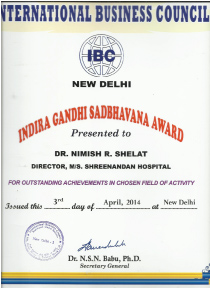
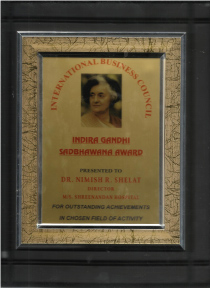
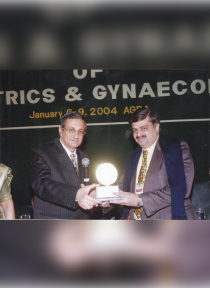
The first in Asia to introduce tubal endoscopy (salpingoscopy), Dr. Shelat also brought third-generation endoscopy to the continent. He is on the Editorial Board of the Asian Journal of OBGYN and was the youngest person in India to be elected onto the Governing Council of the Indian College of Obstetricians and Gynaecologists at the age of 39. He has received numerous international awards, including the European Board of Microsurgery Prize in 1987 from the Catholic University of Leuven, Belgium, and the Fellowship Award of the National University of Singapore in assisted reproductive techniques encompassing micromanipulation cultures and cryopreservation in 1992. He is an honorary fellow of the International Biographical Centre in Cambridge, England. Elected as its Deputy Director General for Asia, the association also awarded him the Gold Star Award for pioneering challenges in in Vitro fertilisation. Dr. Shelat’s research achievements, such as producing the first test tube baby in the world after a plague disaster, have earned him the World’s Lifetime Achievement Award in 1998 and the Twentieth Century Achievement Award from the American Biographical Institute. In addition, he has been a deputy Governor of the American Biographical Institute Research Association, receiving its distinguished Leadership Award. His biography is listed in Reference Asia, Curriculum Vitae International, the International Directory of WHO’s Who’s Who of Intellectuals, and the International Directory of Distinguished Leadership.
